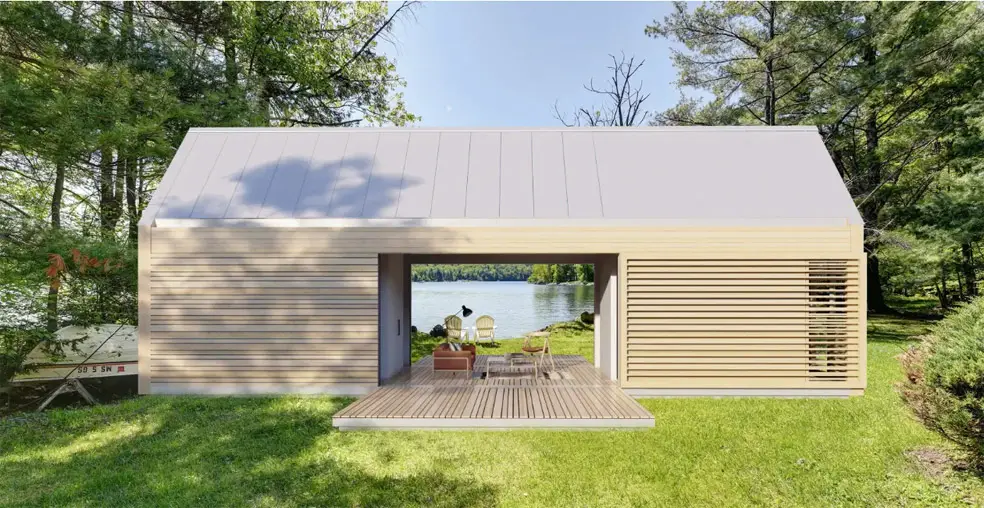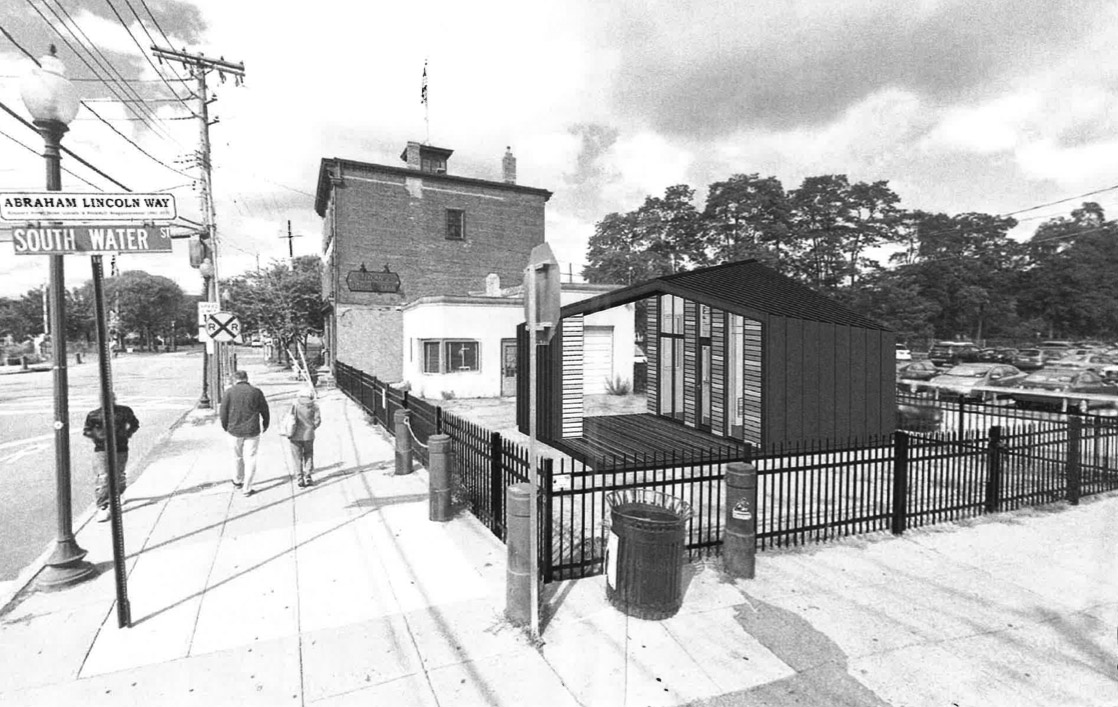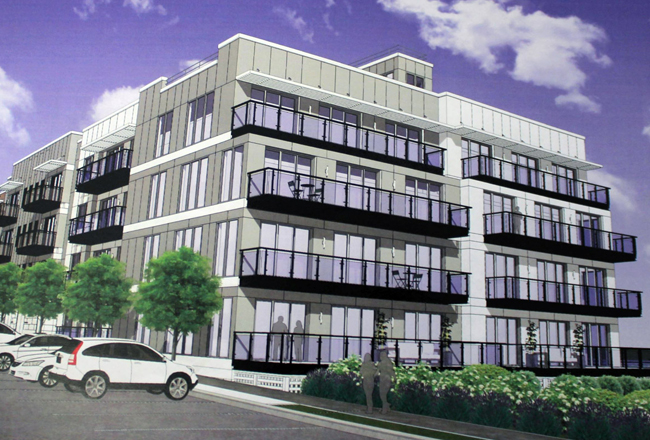Two entrepreneurs believe that the Westchester County housing market, where three-bedroom ranches, four-bedroom colonials and 12-bedroom mansions are the norm, has room for something that doesn”™t take up much room at all: tiny houses.

The structures typically are 200 to 500 square feet, sometimes on wheels so they can be towed to different locations. The homes have been big for years in some parts of the U.S., boosted in part by the HGTV series “Tiny House, Big Living.”
Christos Athanasiou and Jonus Ademovic are partners in the company miniMAX, which has its office in Long Island City. They won approval June 9 from the Peekskill Planning Board to build a tiny house at 51 Hudson St., at the corner of South Water Street, near the Metro-North Railroad station.
The structure would be used as a sales office to introduce people to the tiny house concept while explaining to prospects the services and tiny house products miniMAX offers.
The Peekskill tiny house is classified as a temporary structure that would be put up this summer and removed next spring. The planning board voted to approve the site plan for building the tiny house and said there would be no adverse environmental impacts.
The interior of the showplace tiny house in Peekskill would be 265 square feet with an exterior deck that covers another 265 feet.
It would have an electrical connection, but not be hooked up to sewer or water lines because no one would be living there. The application to Peekskill indicated that it would take about a week to a week and a half to install. Finishes would include natural wood siding, glass and seamed metal.

A staff report from Peekskill City Planner John Lynch had noted that miniMAX was seeking a waiver from the requirement to provide two parking spaces because of nearby municipal parking. He stated that the city had asked miniMAX to include a small plaque near the sidewalk at the tiny house that describes what the house is, who to contact for more information, that it is a temporary installation and that the Peekskill zoning code does not currently permit tiny houses as either a principal or accessory use.
“The exposure is key. We like the location. There”™s a lot of activity as we see it,” Athanasiou told the Business Journal.
Ademovic noted that both he and Athanasiou are architects.
“We were thinking how can we make this more affordable. People in New York City might be thinking about having something in the Catskills, outside of New York City, just as a weekend getaway basically,” Ademovic said.
“At the same time, there are a lot of people who have homes where they might use some kind of guest house or pool house or living quarters for an elderly parent. Our homes are kind of like a one-bedroom apartment that”™s been adapted to interact with nature.”
He said that anyone in Westchester with a regular house on a large enough piece of property could add a tiny house to the backyard if zoning and other local regulations permitted.
Athanasiou said the exterior components of the tiny houses they”™re offering generally would be priced from $50,000 to $120,000 and they could be assembled by local craftsmen. The components are factory-built and would include walls, roof, windows, doors and interior partitions.
“We have an interiors kit that we offer. Vendors we work with supply us with interior finishes, kitchens, bathrooms, floors, down to the paint,” Athanasiou said. “People have the option to buy their own and finish it themselves the way they want. We”™re also going as far as supplying a furniture kit.”
Ademovic and Athanasiou pointed out that New York state last year joined about a dozen other states and legalized putting a tiny house on a foundation rather than just limiting them to be structures on wheels like campers or house trailers. MiniMAX is providing its services in the Hudson Valley, Catskills, Long Island and Berkshires of Massachusetts.
Athanasiou said they have a manual on their website, minimaxliving.com, that acts as step-by-step guide for people interested in looking into tiny houses in a big way. The company suggests that tiny houses could be put to various uses, including as weekend retreats, starter homes, garden offices, guest houses, pool houses and even for Airbnb rentals. It offers to work with a buyer interested in do-it-yourself installation as well as providing turnkey houses.
“It really starts with step one: speak with your local code enforcer, building department, find out if you can actually build one of these on your property before moving forward,” Athanasiou said.
“New York state is moving forward with legislation to permit tiny homes as-of-right and bypassing any town and local zoning ordinances.”
He forecast a time when municipalities would preapprove standardized tiny houses so that people can just buy and install a factory-built unit as easily as they buy and drive a factory-built car.
Ademovic noted that in California standardized tiny houses currently can be bought and installed without a lengthy permitting process.


















